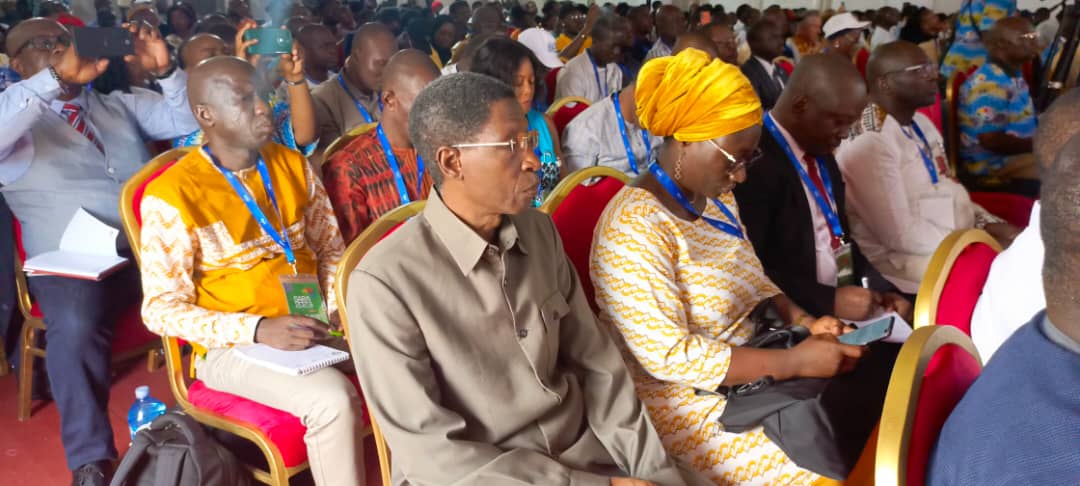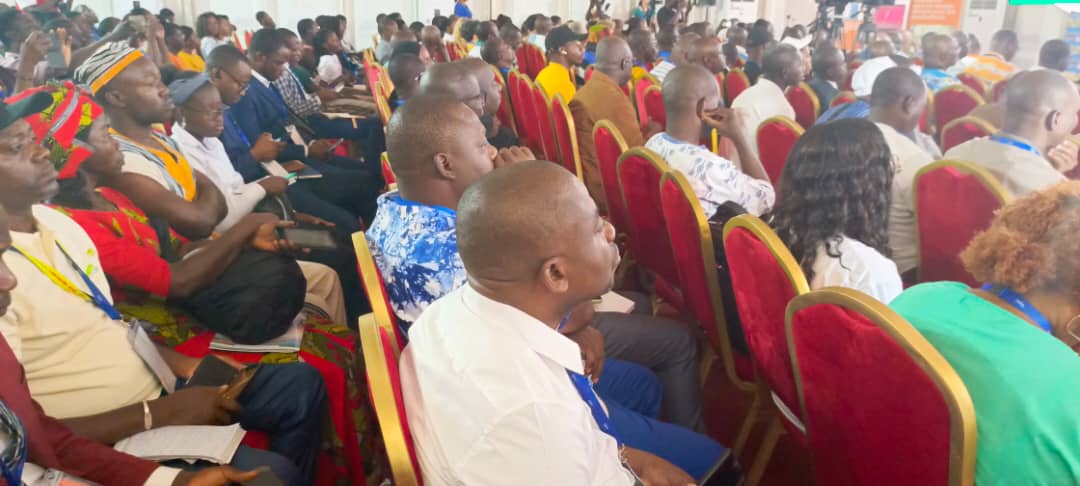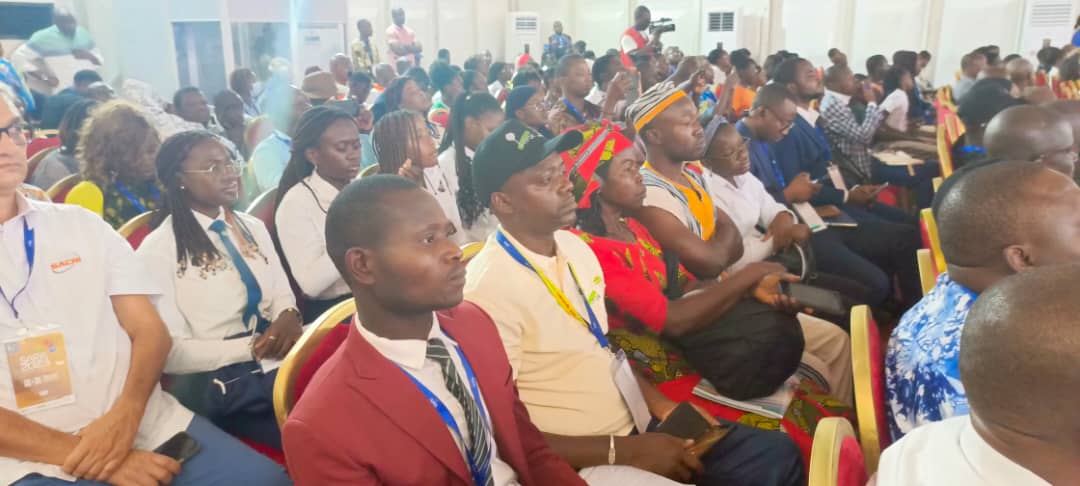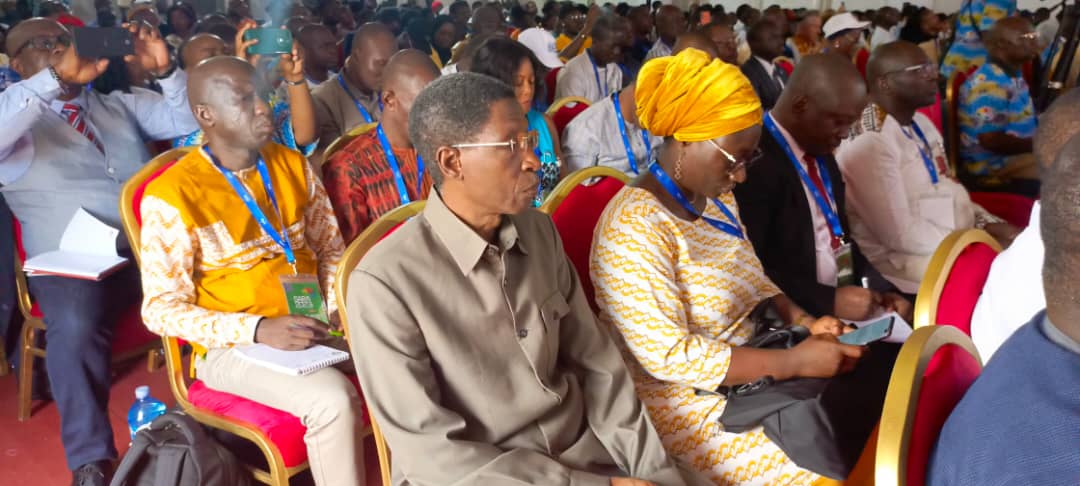SARA 2023: ECOWAS shares its experience of shocks mitigation mechanisms and the use of ICTs in agriculture
03 Oct, 2023On the third day of the Agriculture and Animal Resources Exhibition (SARA, 1st October 2023), national and international partners were invited to take part in discussions at the inaugural conference on the central theme of “African agriculture in the face of internal and external shocks: structural innovations to improve agricultural sectors and guarantee food sovereignty”.
After outlining the various shocks facing African populations, the Director General of the International Institute of Tropical Agriculture (IITA), Dr Siméon Ehui, focused on the impact of climate change, which is making African agriculture more fragile. He called on stakeholders and decision-makers to prioritize the use of drought-tolerant agricultural technologies adapted to conditions of climate variability. He also called for rapid response mechanisms to be put in place to deal with shocks when they occur.
The Regional Director of the International Centre for Research in Agroforestry (ICRAF/CIFOR), Dr Kouamé Christophe, proposed agroforestry as a solution to shocks and to make African agriculture sustainable. Agroforestry involves combining trees with crops or livestock in the same agricultural production system. The trees, which may be of forest or fruit species, can be found right on the farm.
The FAO Resident Representative in Côte d’Ivoire, Dr Attaher Maiga, stressed the need to strengthen partnerships between institutions to share experience and pool resources. For him, the lasting solution to shocks is solidarity between countries and institutions.
ECOWAS, through its Director of Agriculture and Rural Development, Mr Alain SY TRAORE, shared the experience of the ECOWAS response mechanism to internal and external shocks. He began by outlining the main endogenous and exogenous shocks faced by the West African sub-region since 1970, before presenting the Regional Food Security Reserve, which enables regional solidarity to be brought into play in the event of a major food crisis, with support in the form of physical stocks and financial support. “The Regional Reserve is the third line of defence in preventing and managing food crises. It complements local stocks (the first line of defence at village and community level) and national food security stocks (the second line of defence) held by governments,” stressed the ECOWAS representative.
The Regional Food Security Reserve (RFSR) in West Africa was created by the Heads of State and Government of ECOWAS Member States in February 2013, by Supplementary Act to the revised ECOWAS Treaty (AS/2/02/13).
“Technology and innovation in agriculture: How can new technologies be used to increase agricultural productivity and improve value chains? This was the theme of the second conference, during which the ECOWAS experience was shared. Dr Kémo Badji, an expert in fruit fly surveillance and control systems at ECOWAS, mapped out the various ICT-based information systems developed in the sub-region. He also stressed that ECOWAS has made digitisation of agriculture a priority to prevent or mitigate food shocks.
Through the two presentations, ECOWAS has increased its visibility by publicising some of the main results of the implementation of its Agricultural Policy (ECOWAP).





















